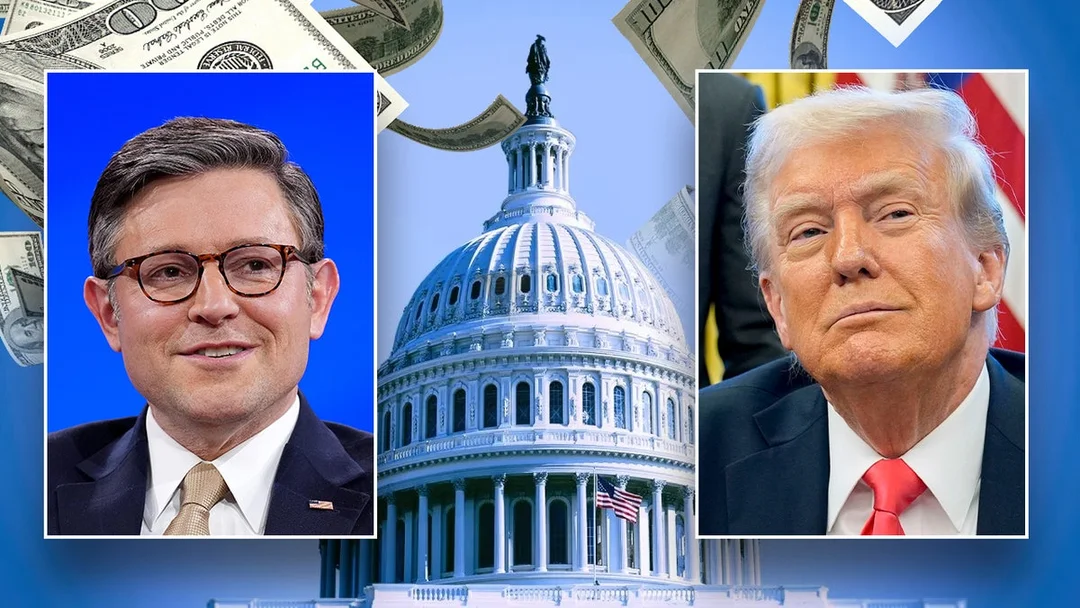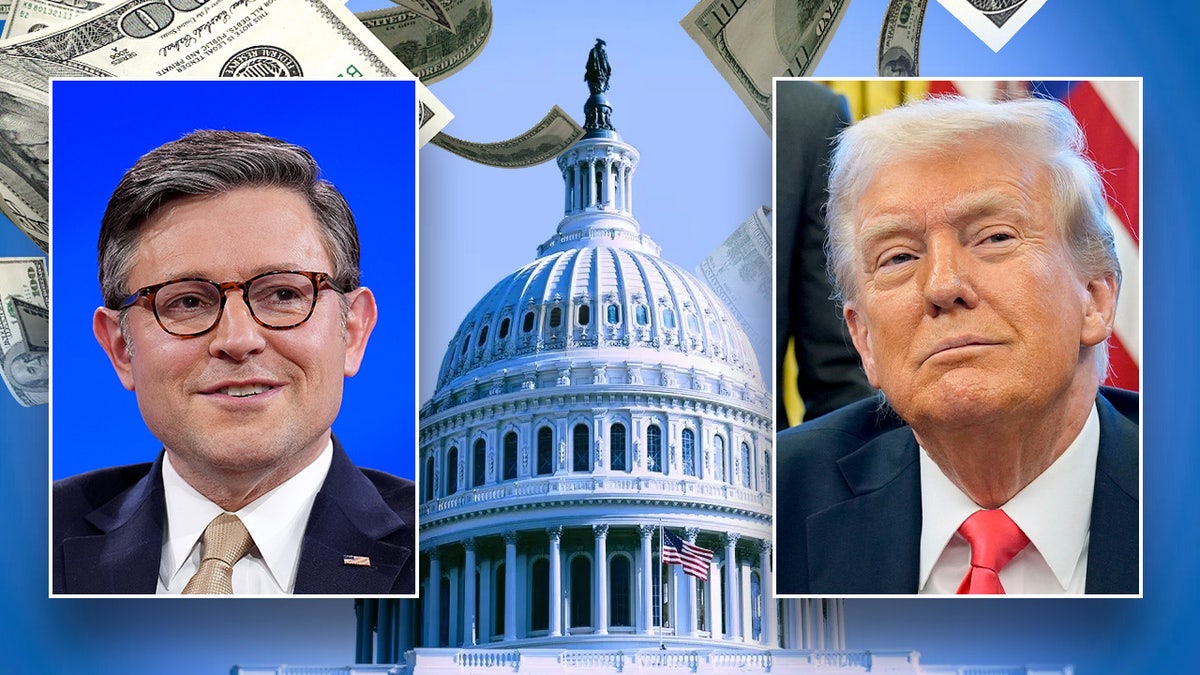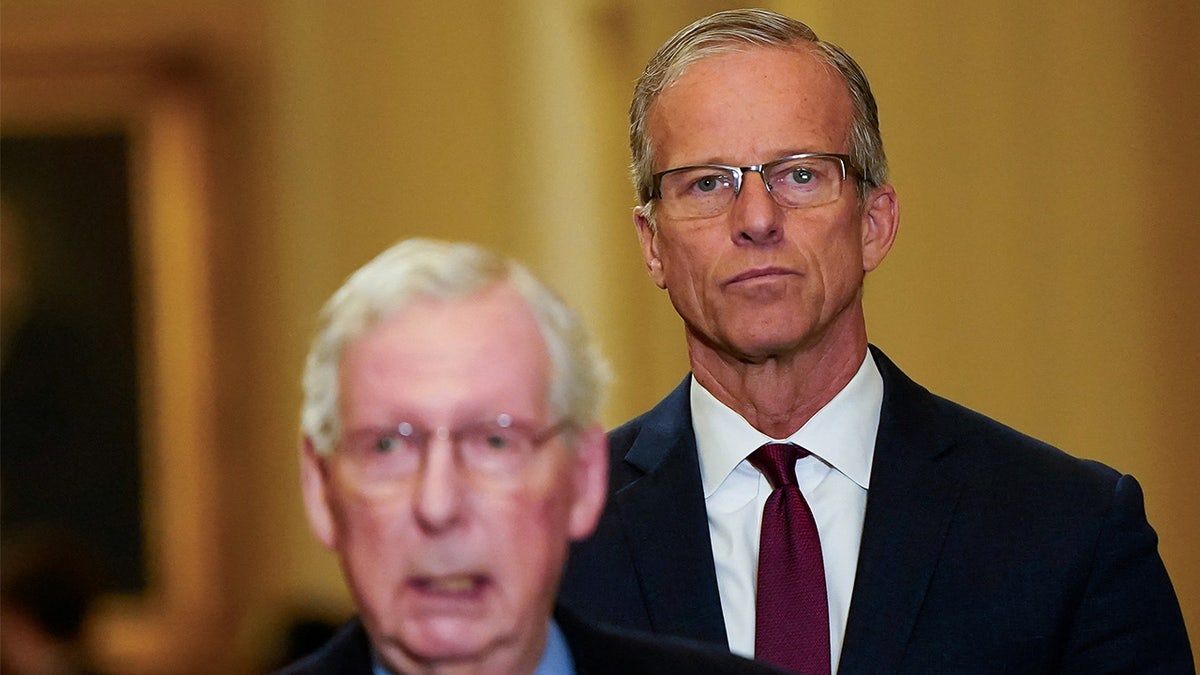
House Republican Budget Clash Threatens Trump’s Domestic Agenda
American politics has once again been thrown into turmoil as deep divisions among House Republicans forced Speaker Mike Johnson to abruptly delay a crucial vote on the party’s budget blueprint aimed at unlocking President Donald Trump’s sweeping tax and spending plans. This deadlock exposes rifts over fiscal priorities within the GOP and casts doubt on the timeline, and even the prospects, of realizing Trump’s ambitious domestic agenda — a defining battle early in his second term.
The showdown unfolded dramatically Wednesday evening when, after over an hour of tense negotiations in a private chamber just off the House floor, Johnson was forced to pull his proposed resolution amid staunch opposition from hardline conservatives. They refused to back a plan they claimed would dangerously swell the national debt, resisting Johnson’s usual pressure tactics that have previously swayed dissenters.

Conservatives demand deeper Senate-approved cuts before lending their support. Some even convened privately with Senate Majority Leader John Thune and Trump himself, seeking ironclad assurances that spending would be curtailed beyond what was green-lit in early negotiations. Johnson emerged from talks appearing worn, admitting only a “small subset” of members remained unconvinced, yet conceding those few could doom the plan. He vowed to try again soon, stating, “probably tomorrow, one way or the other.”
Simultaneously, Capitol Hill has become a labyrinth of legislative options and obstacles. According to Fox News, GOP leaders now scramble this morning for a path forward: securing informal Senate promises to trim more spending, rewriting the bill altogether, or invoking the cumbersome process of a conference committee where House and Senate differences are hammered out before a final version emerges. But these steps add delay—and risk dissatisfaction on every side.
The process is essentially gridlocked at step four out of eight, yet any detours add more hurdles. Senate leaders, having already twice passed versions of the framework, resist further all-night sessions or drastic rewrites. The need for perfect alignment between both chambers is paramount; otherwise, the legislation stalls indefinitely.

Inside GOP corridors, frustration is palpable. Johnson’s margin for dissent is razor-thin: losing more than three votes would tank the resolution. Instead, more than a dozen conservatives stood firm last night, imperiling GOP unity and the president’s legislative goals. Republicans have sought to champion a “big, beautiful bill” offering landmark tax relief while reining in federal outlays, delivering quickly ahead of Memorial Day. But ideological differences over debt and spending priorities threaten that timeline.

This budget struggle encapsulates a broader challenge Republicans face: reconciling promises of fiscal restraint with Trump’s expansive spending programs and tax cuts. Will conservative hardliners eventually yield as they have before, or dig in their heels? And can Johnson’s leadership bridge an unyielding ideological divide at a moment critical both to the party’s legislative record and Trump’s presidency?
As Congress reconvenes to try once more at consensus, Americans watch a familiar story unfold—partisanship colliding with policy imperatives on the nation’s largest stage. Whether these debates yield productive compromise or deepen dysfunction remains to be seen. What’s certain: the stakes for the Republican agenda, and Trump’s second-term legacy, have rarely been higher.
What do you think about the GOP’s internal battle and its impact on the president’s agenda? Share your perspectives below and join the conversation.
Related issues news
Is Trump a Republican?
Donald John Trump (born June 14, 1946) is an American politician, media personality, and businessman who is the 47th president of the United States. A member of the Republican Party, he served as the 45th president from 2017 to 2021. Donald Trump.
What is the budget resolution?
A budget resolution is basically a blueprint to guide Congressional action on budget-related legislation over the course of the year. It does not provide funding for federal programs or change tax law; rather, it sets overall spending and revenue targets, sometimes for as many as 10 years.
What is the Trump tax cut bill?
Under the law, there are numerous changes to the individual income tax, including changing the income level of individual tax brackets, lowering tax rates, and increasing the standard deductions and family tax credits while itemized deductions are reduced and the personal exemptions are eliminated.